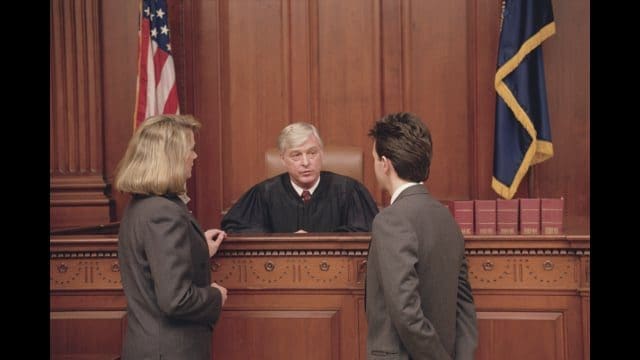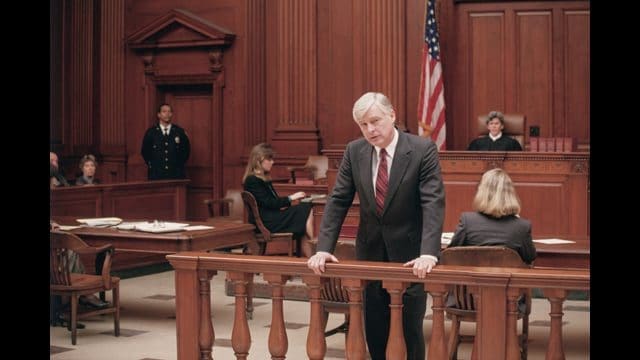
En proceso sucesorio is a legal procedure that occurs after an individual’s death to settle their estate and distribute assets to beneficiaries. This process involves validating the deceased person’s will, if one exists, and ensuring the proper distribution of assets according to the will’s terms or state law if there is no will. Probate serves as a crucial mechanism for resolving the financial affairs of the deceased, including paying off debts and taxes, and transferring property to the rightful heirs or beneficiaries.
The probate process begins with the filing of a petition in the probate court of the county where the deceased person resided at the time of their death. This petition is typically filed by the executor named in the will or by a family member if there is no will. The court then schedules a hearing to review the petition and, if appropriate, officially open the probate case. Once the case is opened, the court appoints an executor (also known as a personal representative) to manage the estate throughout the probate process.
One of the primary responsibilities of the executor is to inventory assets that are subject to probate. This includes identifying and appraising all assets owned by the deceased that do not automatically transfer to beneficiaries through other means, such as joint ownership or beneficiary designations. The executor must present this inventory to the court, providing a comprehensive list of assets such as bank accounts, real estate, stocks and bonds, and personal property.
During the probate process, the executor is also tasked with notifying creditors of the deceased’s passing and the opening of the probate case. This notification serves as a public announcement, allowing creditors to file claims against the estate for any outstanding debts. The executor must review these claims and decide whether to pay them using the estate’s assets. In cases where the estate’s debts exceed its assets, the executor must prioritize creditor claims according to state law.
Another critical aspect of probate is the payment of taxes. The executor is responsible for filing the deceased’s final income tax return and paying any taxes owed from the estate’s assets. Additionally, if the estate is large enough to be subject to estate taxes, the executor must file an estate tax return and ensure that any estate taxes are paid before distributing assets to beneficiaries.
Once all debts and taxes have been paid, the executor can begin the process of distributing the remaining assets to the beneficiaries as specified in the will or according to state intestacy laws if there is no will. This distribution process may involve transferring ownership of real estate, liquidating assets, or dividing personal property among heirs. The executor must keep detailed records of all transactions and distributions made during the proceso sucesorio.
Throughout the probate proceedings, the executor has a fiduciary duty to act in the best interests of the estate and its beneficiaries. This duty includes managing the estate’s assets prudently, avoiding conflicts of interest, and maintaining clear and accurate records of all financial transactions. The executor may be held personally liable for any mismanagement or breach of this fiduciary duty.
In some cases, probate can be a complex and time-consuming process, particularly for large estates or when there are disputes among beneficiaries. Probate litigation may arise if beneficiaries challenge the validity of the will, question the executor’s actions, or disagree about the distribution of assets. Such disputes can significantly prolong the probate process and increase its costs.
To address these potential challenges, many individuals engage in planificación patrimonial to minimize the assets that must go through probate. Common strategies include creating living trusts, which allow assets to pass directly to beneficiaries without going through probate, and using beneficiary designations on accounts such as life insurance policies and retirement accounts. These methods can help streamline the asset transfer process and potentially reduce the time and expense associated with probate.
It’s important to note that not all assets are subject to probate. Assets held in joint tenancy with right of survivorship, payable-on-death accounts, and assets with designated beneficiaries typically pass directly to the surviving joint owner or named beneficiary without going through probate. Understanding which assets are subject to probate and which are not is crucial for effective estate planning and for executors managing the probate process.
The duration of the probate process can vary significantly depending on the complexity of the estate, the efficiency of the executor, and whether any disputes arise. In simple cases, probate may be completed in a matter of months. However, for more complex estates or when litigation is involved, the process can extend to a year or more. This timeline can have significant implications for beneficiaries waiting to receive their inheritances and for the overall cost of administering the estate.
One aspect of probate that often causes concern is its public nature. Probate proceedings are generally a matter of public record, meaning that anyone can access information about the deceased person’s assets, debts, and beneficiaries. This lack of privacy can be troubling for some families and may be another reason why individuals seek to minimize probate through estate planning strategies.
The cost of probate is another factor that motivates many to explore alternatives. Probate expenses typically include court fees, attorney fees, executor fees, and other administrative costs. These fees can be substantial, especially for larger estates, and are usually paid from the estate’s assets before any distribution to beneficiaries. In some states, probate fees are set by statute and are calculated as a percentage of the estate’s value, which can result in significant costs for high-value estates.
Given the potential complexities and costs associated with probate, many individuals and families seek the guidance of estate planning attorneys to develop strategies for minimizing probate or avoiding it altogether. These strategies may include the use of revocable living trusts, which allow assets to be transferred to beneficiaries without going through probate. While setting up a trust involves upfront costs, it can often result in significant savings in time and money compared to the probate process.
Another important consideration in the probate process is the handling of creditor claims. During probate, creditors have a limited time to file claims against the estate for any debts owed by the deceased. The executor is responsible for reviewing these claims and determining their validity. Valid claims must be paid from the estate’s assets before any distribution to beneficiaries can occur. This process ensures that the deceased’s debts are settled fairly, but it can also reduce the amount ultimately available for distribution to heirs.
In cases where the deceased person owned property in multiple states, the probate process can become even more complex. The primary probate proceeding typically occurs in the state where the deceased person resided, but ancillary probate may be necessary in other states where real property is owned. This can result in multiple probate proceedings running concurrently, each following the laws and procedures of its respective state.
The probate process also plays a crucial role in resolving any disputes that may arise regarding the validity of the will or the distribution of assets. If someone contests the will, alleging that it was improperly executed, that the deceased lacked testamentary capacity, or that there was undue influence, the probate court provides a forum for these issues to be heard and resolved. This judicial oversight helps ensure that the deceased’s true wishes are carried out and that the rights of all interested parties are protected.
For estates where the deceased person did not leave a valid will, the probate process becomes even more critical. In these cases of intestate succession, the court oversees the distribution of assets according to state law, which typically prioritizes close family members such as spouses, children, and parents. The probate process in intestate cases helps ensure that assets are distributed fairly and in accordance with legal requirements, even in the absence of clear instructions from the deceased.
One of the challenges executors often face during probate is the valuation of assets. Accurate valuation is crucial for several reasons, including determining estate tax liability, dividing assets equitably among beneficiaries, and setting a basis for capital gains tax purposes. For some assets, such as publicly traded securities, valuation is relatively straightforward. However, for other assets like closely held businesses, real estate, or unique collectibles, professional appraisals may be necessary to establish fair market value.
The probate process also addresses the issue of insolvent estates, where the deceased’s debts exceed the value of their assets. In these cases, the probate court follows a specific order of priority for paying creditors, as established by state law. This ensures that creditors are treated fairly and that certain types of debts, such as funeral expenses and taxes, are given priority over others. Any remaining debts are typically discharged, meaning creditors cannot pursue payment from the beneficiaries personally.
An important aspect of probate that is often overlooked is its role in providing a clear title to real property. When real estate passes through probate, the court’s final order serves as evidence of the transfer of ownership from the deceased to the beneficiaries. This clean transfer of title can be particularly important for beneficiaries who wish to sell inherited property, as it helps prevent future title disputes.
The probate process also plays a role in protección de activos for beneficiaries. Once assets have been distributed through probate, they generally become the property of the beneficiaries and are protected from claims by the deceased’s creditors. This can provide important financial security for heirs, especially in cases where the deceased had significant debts.
In recent years, many states have introduced simplified probate procedures for small estates. These small estate affidavits or summary administration processes allow for a streamlined transfer of assets when the estate’s value falls below a certain threshold. While the specifics vary by state, these procedures can significantly reduce the time and cost associated with settling smaller estates.
El papel de digital assets in the probate process has become increasingly important in the digital age. Executors must now consider how to handle the deceased’s online accounts, cryptocurrencies, and other digital property. This can present unique challenges, as many online service providers have their own policies regarding account access after death. Proper estate planning should now include provisions for managing and transferring digital assets.
Another trend affecting the probate process is the increasing use of pour-over wills in conjunction with living trusts. A pour-over will directs that any assets not already in the trust at the time of death should be transferred to the trust through the probate process. This can help ensure that all assets are ultimately distributed according to the terms of the trust, even if some assets were inadvertently left out of the trust during the person’s lifetime.
The probate process also intersects with other areas of law, such as derecho mercantil when the deceased owned a business interest. The executor may need to work with business partners or corporate entities to properly value and transfer business assets. This can involve complex negotiations and may require specialized legal and financial expertise.
In some cases, the probate process may involve international considerations. If the deceased owned property in foreign countries or was a citizen of another nation, the executor may need to navigate both domestic and international laws governing the transfer of assets. This can add significant complexity to the probate process and may require coordination with foreign legal and financial professionals.
The probate process can also be affected by dinámica familiar and relationships. In cases where there is family conflict or estrangement, the probate process may become more contentious. Executors may find themselves mediating disputes between family members or dealing with beneficiaries who are uncooperative or difficult to locate. In such situations, the probate court can provide valuable oversight and resolution mechanisms.
An emerging issue in probate law is the treatment of cryogenically preserved individuals. As more people choose to have their bodies or brains preserved after death in the hope of future revival, questions arise about how to handle their estates. Some individuals create trusts to manage their assets indefinitely, while others specify that their estates should be settled as if they were deceased. The legal and ethical implications of these arrangements are still being explored in many jurisdictions.
The probate process also intersects with derecho de la tercera edad considerations, particularly in cases where the deceased was under guardianship or conservatorship at the time of death. The probate court may need to review the actions of the guardian or conservator and ensure that the estate is properly transitioned from guardianship to probate administration.
In conclusion, the probate process serves as a crucial legal mechanism for settling estates and ensuring the orderly transfer of assets after death. While it can be complex and time-consuming, probate provides important protections for creditors, beneficiaries, and the intentions of the deceased. As legal and societal norms continue to evolve, the probate process is likely to adapt to address new challenges and opportunities in estate settlement. Understanding the intricacies of probate can help individuals better prepare for the future and assist executors in fulfilling their important responsibilities.
- https://www.araglegal.com/partners/learning-center/topics/planning-your-legacy/six-steps-of-probate-process
- https://legacyassuranceplan.com/articles/wills-probate/understanding-probate-implications-estate-planning
- https://natlawreview.com/article/2024-year-end-estate-planning-california-updates
- https://trustandwill.com/learn/2024-probate-study
- https://lifework.arizona.edu/news/2024/probate-process
- https://www.evanscase.com/five-challenges-in-probate-administration-and-ways-to-resolve-them/
- https://www.investopedia.com/terms/p/probate.asp
- https://wileslawfirm.com/blog/common-issues-and-challenges-in-estate-probate/
- https://www.trustworthy.com/blog/when-someone-dies/settling-an-estate-a-step-by-step-guide
- https://www.americanbar.org/groups/real_property_trust_estate/resources/estate-planning/probate-process/
- https://www.actec.org/resource-center/video/inheritance-and-estate-settlement-when-will-i-get-my-money/
- https://www.elderlawfirm.com/the-4-things-you-should-know-about-settling-an-estate/
- https://www.findlaw.com/estate/probate/probate-process-and-timeline.html
- https://www.ncsecu.org/resources/learn/10-steps-to-estate-settlement.html
- https://trustandwill.com/learn/estate-settlement
- https://www.metlife.com/stories/legal/what-is-probate/
- https://www.freewill.com/learn/how-to-probate-a-will
- https://www.arthurstatebank.com/blog/steps-in-settling-an-estate/
- https://www.freewill.com/learn/guide-to-probate-process
- https://www.araglegal.com/partners/learning-center/topics/planning-your-legacy/what-does-settling-an-estate-mean
- https://www.nolo.com/legal-encyclopedia/how-settle-estate.html
- https://www.actec.org/resource-center/video/what-is-probate/
- https://www.dhtrustlaw.com/estate-planning-law-changes-2024/
- https://trustandwill.com/learn/2024-estate-planning-trends
- https://modernwealthlaw.com/2024-legal-updates/
- https://www.georgialegalaid.org/resource/what-should-i-know-about-the-probate-process-in-georgia
- https://katten.com/2024-year-end-estate-planning-advisory
- https://www.americanbar.org/groups/real_property_trust_estate/resources/probate-property/2024-january-february/keeping-current-probate/
- https://www.forsythco.com/Departments-Offices/Probate-Court/Forms
- https://carystreetpartners.com/insight/estate-settlement-process/
- https://www.youtube.com/watch?v=PKyizuEQsyI
- https://www.americanbar.org/groups/real_property_trust_estate/resources/estate-planning/probate-process/
- https://www.forbes.com/sites/matthewerskine/2024/05/13/navigating-the-complex-terrain-of-estate-settlement/
- https://www.gasupreme.us/probate-court-standard-forms/
- https://mortonelderlaw.com/what-are-the-most-common-probate-problems/
- https://www.moravecslaw.com/post/new-rules-for-probate-in-california-you-need-to-know-for-2024
- https://ttc.lacounty.gov/wp-content/uploads/2023/04/PUBLIC-ADMINISTRATOR-FAQ.pdf
- https://www.elsawsmithlaw.com/10-things-that-can-go-wrong-during-probate-part-i/
- https://www.srlawoc.com/blog/how-does-probate-work-in-california/
- https://www.placer.courts.ca.gov/sites/default/files/probate-glossary-public.pdf
- https://wileslawfirm.com/blog/common-issues-and-challenges-in-estate-probate/
- https://selfhelp.courts.ca.gov/probate
- https://theprobatepro.com/glossary-of-probate-terms/
- https://www.sweeneyprobatelaw.com








